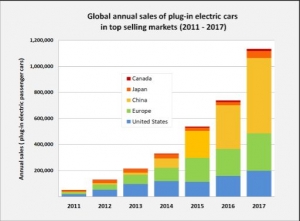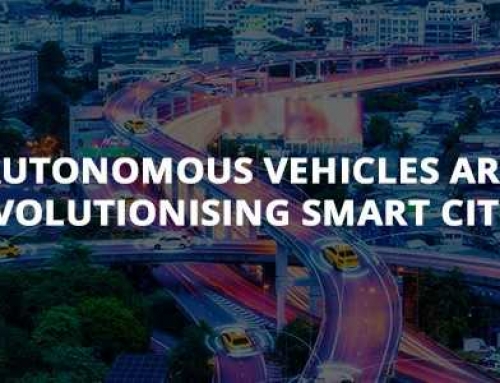Despite noticeable and intermittent drops in automobile sales across the world, conventional manufacturers and distributors seem unfazed.
2018 marked the biggest drops in sales for fossil-fuel powered cars, resulting in some companies going on the record to dismiss these fluctuations (0.8% ~ 3%) as mere market gaps and blocks. However, automotive providers in countries like UK and China recorded their worst performing financial quarters in the second half of 2018. The largest possible contributor to this slump involves the public’s reduced dependence on private transportation and increased sales of electric vehicles.

Globally, over 1 million Electrical Vehicles (EVs) were sold in 2018. The United States alone saw an 81% hike in EV sales, with almost 400,000 units dispersed.
The Hybrid-Electric Vehicle (HEV) and EV market is constantly adapting and diversifying with respect to their market of focus. As Tesla rules the roost with a whopping 139,000+ units sold in Q3, as of 2018, other competitors in the market have also scrambled their resources to match these numbers. With companies like General Motors notching a meagre 18,000 units being sold, the need to innovate and adopt new technologies into vehicles has increased. If we take the Tesla Model 3 out of the equation, HEV-EV sales peaked by a mere 11%, which is justified as a poor show of form by the industry.

But these dismal numbers won’t last for long according to industry experts, as mid-range manufacturers have also started retooling their production and assembly lines to mass produce HEV-EVs.
KIA Motor Corp has two models in the pipeline (Kia Soul and Kia Niro) and luxury brand makers like Jaguar, Porsche, Audi and BMW are also stepping up to the batting plate, with multiple viewings of their concepts lined-up for 2019.
Although on the other side of the spectrum, contending giants have managed to pull out of this race prematurely. Apple Inc., who launched their maiden autonomous (self-driving) hybrid vehicle program titled ‘Project Titan’, have finally closed the curtains on their venture. In a report by CNBC, the project fired around 200 support staff and moved the remainder of the team members to other verticals within the confines of the organisation.
Project Titan underwent a massive overhaul in 2015, with the immediate scaling-down of the idea. Initially created to develop self-driven vehicles, the revamp pushed it into the IT manufacturing segment when it started developing tools and components that can be used in autonomous vehicles! However, market studies and projections showed that there were no visible buyers for the products in the market and with sluggish Iphone sales during the second half of 2018, Apple was forced to cut its losses and wind-up their Autonomous Vehicle Department.

And in the midst of Apple’s woes, commercial aviation manufacturer Boeing made headlines after successfully testing their first ‘Flying Car’. The test was conducted on Boeing’s premises, and the car managed to hover in the air for a short duration before rapidly descending back. Furthermore, Boeing has collaborated with AI-ML solution provider SparkCognition Inc. and the U.S. Federal Aviation Department to construct a robust traffic management system for three dimensional highways along with the framework to allow autonomous flying cars to move around buildings with ease.
So in hindsight, the industry is experiencing differentiating ratios in market volatility. As the Autonomous and HEV-EV market is rapidly fuelling their RND divisions, increasing costs for components and tech has created a roadblock for solution providers operating out of the Fortune 500 threshold. So as the market looks for answers to combat the problems that lie between their dreams and fruition, dedicated expos and connects have cropped up across the globe to provide a platform for the mutual sharing of knowledge and resources. World Mobility Show, hosted in Dubai by global events and consulting firm Trescon, will look to connect key government associations and investors, in the entire MENA region, with various solution providers whom are looking to disrupt the future of mobility and transportation.
You too can be a part of this event, and learn how we are inching closer towards the reality behind changing the way we move people goods and commodities forever!
Image Sources:
Green Tech Media
Google Images




Leave A Comment